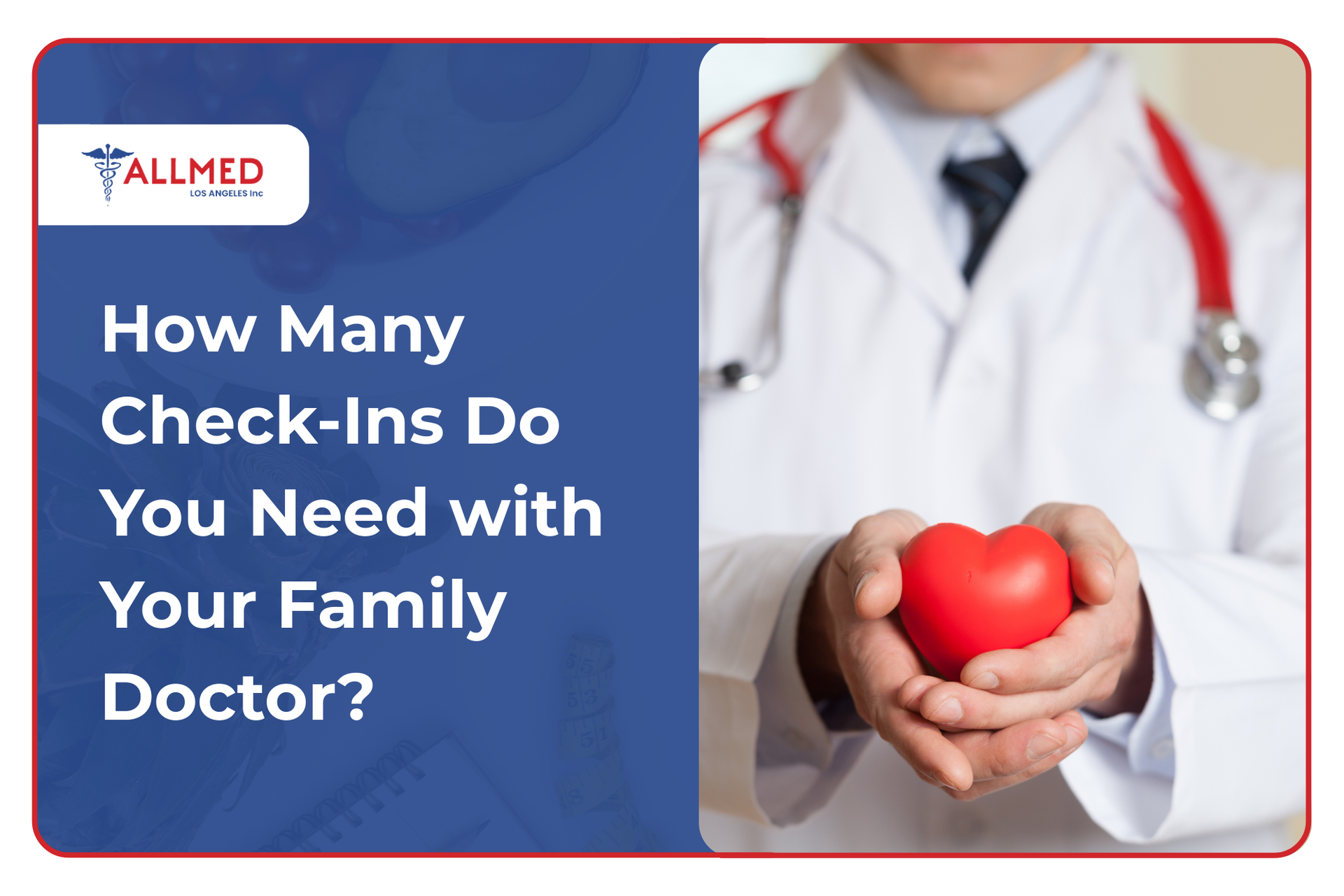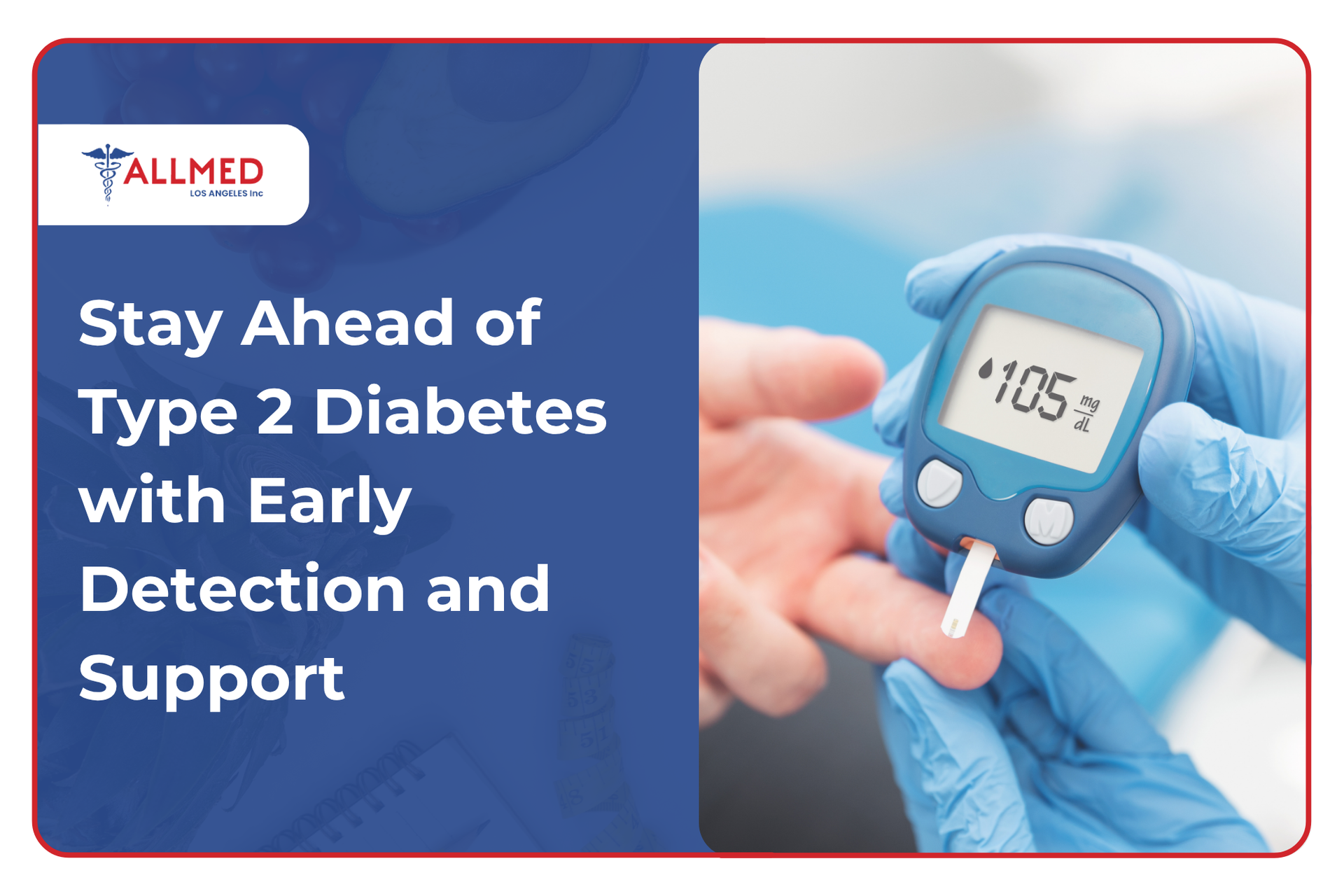Chronic diseases like diabetes, high blood pressure, heart disease, and obesity affect 6 in 10 Americans, according to the Centers for Disease Control and Prevention (CDC)—and the numbers keep rising. Beyond medication and check-ups, sometimes it’s important to look at what’s on your plate.
The truth is that what we eat plays a role not just in how we feel day to day but in how chronic conditions develop, progress, and improve over time. At Allmed LA, we believe food isn’t just your fuel; it should be part of your
chronic disease management care plan. That’s why we’re committed to giving you the tools, guidance, and support to take charge of your health, one bite at a time.
Take the Bite Toward Better Health
The Link Between Diet and Chronic Disease
When it comes to chronic conditions, diet isn’t just a side factor; it’s often at the center of the issue. Our
licensed nutrition consultants will tell you the same thing: what we eat can either support our health or quietly work against it over time.
Highly Processed, Heavily Problematic
About
73% of American groceries are stocked with ultra-processed foods. These are calorie-packed, nutrient-poor, and often loaded with hidden sugar, sodium, and unhealthy fats.
Sugar’s Sweet Deception
Most Americans eat
17 teaspoons of added sugar daily (already way over the recommended limit). Having too much results in type 2 diabetes, liver issues, and weight gain.
The Salty Truth About Sodium
We consume about
3,400mg of sodium per day—1,100mg more than advised. High sodium levels are notorious for contributing to high blood pressure and heart disease.
Fat That Fights Against You
Saturated and trans fats can raise LDL (bad) cholesterol and increase your risk of heart disease. Swap them out for heart-friendly fats like olive oil or avocado.
When Food Access Isn’t Equal
Over
23.5 million Americans live in food deserts. These are areas with limited access to affordable, healthy food. Without the right options, managing chronic conditions becomes even harder.
How Does Nutritional Guidance Help Manage Chronic Diseases
If poor nutrition can contribute to chronic illness, the opposite is also true: good nutrition can help prevent it.
Healthy Diets for Chronic Conditions
Two of the best diets for managing chronic disease symptoms and promoting long-term health are:
- The Mediterranean Diet — Rich in fruits, veggies, whole grains, olive oil, and lean proteins. It’s proven to lower the risks of heart disease and cognitive decline.
- The DASH Diet (Dietary Approach to Stop Hypertension) — Focuses on lowering sodium, increasing potassium, and eating more fiber-rich foods to help reduce blood pressure naturally.
Power Foods That Do More
Small but mighty, vitamins and minerals play a big role in chronic disease prevention:
Nutritional Guidance in Chronic Disease Management
Making smart food choices is one thing; making them work for your life is another. To us at Allmed LA, getting proper guidance and nutritional therapy for chronic diseases should be a given.
Here’s how we help turn food into fuel for better outcomes:
Your Nutrition Allies
Our care team includes
registered dietitians and licensed nutritionists who work alongside your primary provider. They’re here to help translate “eat healthy” into something realistic with clear, science-backed guidance you can follow.
One Size Doesn’t Fit All
Everyone’s body is different. That’s why your nutrition plan should be just as unique. We consider:
- Your existing conditions (like diabetes, heart disease, kidney concerns)
- Cultural and dietary preferences
- Allergies or intolerances
- Personal goals (weight management, energy, symptom relief)
Food That Fits Your Life
Personalized plans can help with specific strategies, such as:
- Carb counting for people with diabetes to balance blood sugar
- Meal timing to match medication schedules
- Balanced plate planning to reduce inflammation and support heart health
Food as Your Medication Partner
Nutrition can support (or sometimes replace) certain medications. For example:
- Eating potassium-rich food lowers blood pressure, reducing the need for more medication.
- Better glycemic control through diet can lead to fewer diabetes meds or lower doses.
- High-fiber meals can improve digestion and absorption, making your medications work more effectively.
Nutrition’s Role in Clinical Diagnosis and Monitoring
What you eat affects more than how you feel; it shows up in your lab results, guides treatment decisions, and helps us track your progress over time.
Food Shows Up in Your Labs
Certain blood tests are directly influenced by what you eat:
- A1C levels — Reflect average blood sugar over 2-3 months and are shaped by your carb intake and meal patterns
- Lipid panels — Diets high in saturated fats or trans fats often lead to elevated cholesterol and triglycerides
- Liver enzymes & kidney function tests — can reflect overnutrition, undernutrition, or dehydration
Clues from Deficiencies or Excesses
Sometimes, what’s missing in your diet is just as telling.
- Low iron may suggest iron-deficiency anemia, often caused by poor intake or absorption.
- Low vitamin D is common and can worsen fatigue, bone health, and immune function.
- Too much sodium might explain elevated blood pressure even if other factors seem controlled.
Food Logs: A Diagnostic Goldmine
Keeping a simple food journal can help us spot:
- Patterns in blood sugar spikes.
- Triggers for GI issues or fatigue.
- Nutrient gaps that may be causing or worsening symptoms.
Break Down Barriers to Nutritional Support with AllMed LA
Nutrition matters, but that doesn’t mean it’s always easy to access or apply the right support for
chronic disease care, especially if you consider other factors:
- Cost concerns: Many think nutrition guidance isn’t affordable or covered.
- Conflicting advice: Online tips can do more harm than good.
- Cultural mismatch: Guidance isn’t always personalized or culturally sensitive.
- Time constraints: Busy lives leave little room for complicated meal planning.
We understand the roadblocks you’re facing. Our team here at Allmed LA is forever committed to making nutrition practical, personal, and possible no matter where you’re starting from.
Multilingual Nutrition Education
We offer resources and consultations in multiple languages, so you and your family feel seen, heard, and supported.
Flexible Appointments
Whether you prefer in-person or virtual, our licensed dietitians are available to meet you where you are.
Culturally Relevant Meal Planning
Our plans incorporate the foods you know and love while supporting your health goals because wellness should never mean giving up your identity.
Nutrition shouldn't be a luxury. At Allmed LA, it’s care that fits your life—and it starts with a conversation.
Ready to Take Control of Your Health?
Frequently Asked Questions
Can changing my diet really make a difference in managing chronic disease?
Absolutely. While medications and treatments play a key role, diet can significantly improve outcomes. Nutrient-dense foods help control blood sugar, blood pressure, cholesterol, inflammation, and weight—all major factors in managing conditions like diabetes, hypertension, and heart disease.
Do I need to completely cut out certain foods to be healthy?
Not necessarily. It’s more about balance than restriction. A healthy eating plan allows room for occasional treats while focusing on whole foods like fruits, veggies, lean proteins, whole grains, and healthy fats. At Allmed LA, we help create realistic, sustainable plans that fit your lifestyle.
How do I know if my current diet is affecting my health?
Pay attention to signals like low energy, digestive issues, weight changes, or abnormal lab results (like high A1C or cholesterol). These can be early indicators that your diet may need adjusting. At Allmed LA, our team uses tools like diet tracking, lab work, and symptom review to help you connect the dots and take action.
How can I get nutritional support at Allmed LA?
We make it easy! Allmed LA offers on-site and virtual nutrition consultations, multilingual education, and coordinated care with your providers. Whether you’re managing a diagnosis or working on prevention, our care team can help you create a plan that works for you.















